"Saint Antony the Great, you who dedicated your life to Christ through prayer, fasting, and asceticism, intercede for us. Help us to follow your example of faith and perseverance. Guide us in our struggles, that we may grow closer to God. Pray for us, that we may find strength in our trials and remain steadfast in our devotion. Amen."
ST. ANTONY THE GREAT
ST. ANTONY THE GREAT
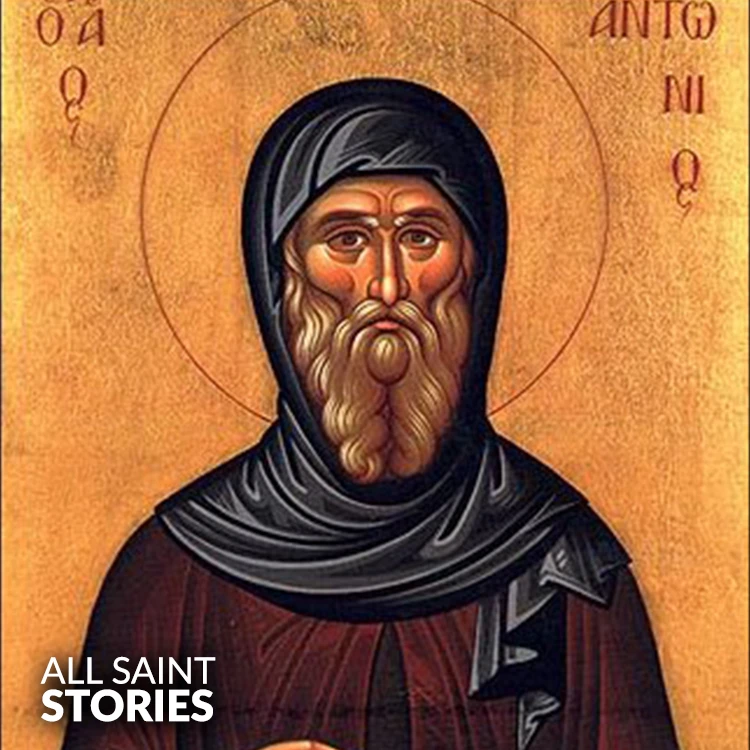
St. Antony the Great, also known as Antony of Egypt, was a Christian monk and one of the earliest figures in the history of monasticism. Born in 251, he left his wealth behind to live a life of solitude and prayer in the desert. His dedication to a life of asceticism, humility, and devotion to God made him one of the most revered saints in Christian history. He is considered the father of Christian monasticism.
St. Antony the Great, also known as St. Antony of Egypt, was born around 251 AD in a wealthy Christian family in Coma, Egypt. After his parents died when he was a young man, Antony felt a deep calling to leave behind the comforts of his life and follow the path of a hermit. He sold his inheritance and distributed the money to the poor, choosing to live in solitude in the desert of Egypt to devote his life entirely to prayer and penance.
Antony spent much of his time in isolation, battling temptations and spiritual trials, which were later recorded as accounts of his great struggle with the devil. His time in the desert was marked by long periods of prayer, fasting, and contemplation. He lived an ascetic life, rejecting earthly comforts in favor of spiritual fulfillment. His faithfulness to prayer and his refusal to succumb to worldly distractions made him a shining example of piety and humility.
As his reputation for holiness spread, many people sought Antony out for spiritual guidance. While he preferred solitude, he eventually agreed to establish a community of monks. Antony is widely regarded as the father of Christian monasticism because he helped to inspire and form the foundational principles of monastic life, such as solitude, community, and prayer. His influence extended far beyond his lifetime, and many early monastic communities followed his example of asceticism and devotion.
Antony was also known for his fierce fight against the Arian heresy, which denied the divinity of Christ. He was a strong proponent of orthodox Christian doctrine and upheld the teachings of the Church throughout his life. He encouraged fellow monks to stay true to their faith and resist the temptations of false teachings.
St. Antony's life was filled with miracles, and he was often visited by those seeking healing, advice, or prayer. Many reports describe him as having a profound spiritual wisdom, helping people who came to him for counsel. His guidance was instrumental in the growth of monasticism in Egypt, and by the time of his death, there were many followers of his teachings who continued his work.
St. Antony passed away in 356 AD at the age of 105, a testament to his disciplined and faithful life. He was buried in a tomb in the desert, which became a site of pilgrimage for those who sought his intercession and guidance. St. Antony was revered as a saint from early Christian times, and his feast day is celebrated on January 17.
His legacy has had a profound and lasting impact on the development of monasticism within the Christian Church. Monasteries inspired by his example continue to exist today, and his spiritual teachings are considered foundational to the practice of asceticism.
Video Not Found
The information on this website is compiled from various trusted sources. While we aim for accuracy, some details may be incomplete or contain discrepancies.
If you notice any errors or have additional information about this saint, please use the form on the left to share your suggestions. Your input helps us improve and maintain reliable content for everyone.
All submissions are reviewed carefully, and your personal details will remain confidential. Thank you for contributing to the accuracy and value of this resource.
Credits & Acknowledgments
- Anudina Visudhar (Malayalam) – Life of Saints for Everyday
by Msgr. Thomas Moothedan, M.A., D.D. - Saint Companions for Each Day
by A. J. M. Mausolfe & J. K. Mausolfe - US Catholic (Faith in Real Life) – Informational articles
- Wikipedia – General reference content and images
- Anastpaul.com – Saint images and reflections
- Pravachaka Sabdam (Malayalam) – Saint-related content and insights
We sincerely thank these authors and platforms for their valuable contributions. If we have unintentionally missed any attribution, please notify us, and we will make the correction promptly.
If you have any suggestion about ST. ANTONY THE GREAT
Your suggestion will help improve the information about this saint. Your details will not be disclosed anywhere.
© 2026 Copyright @ www.allsaintstories.com

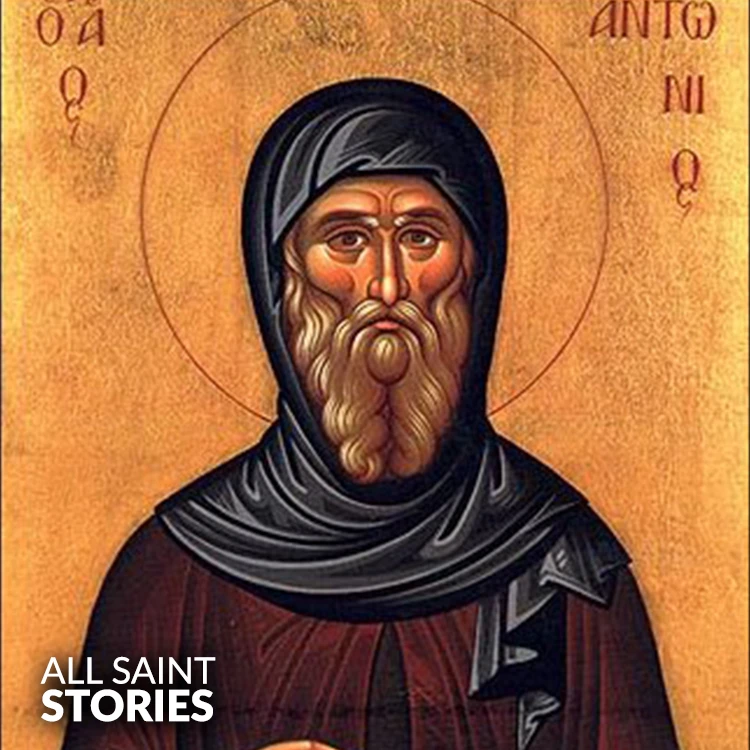
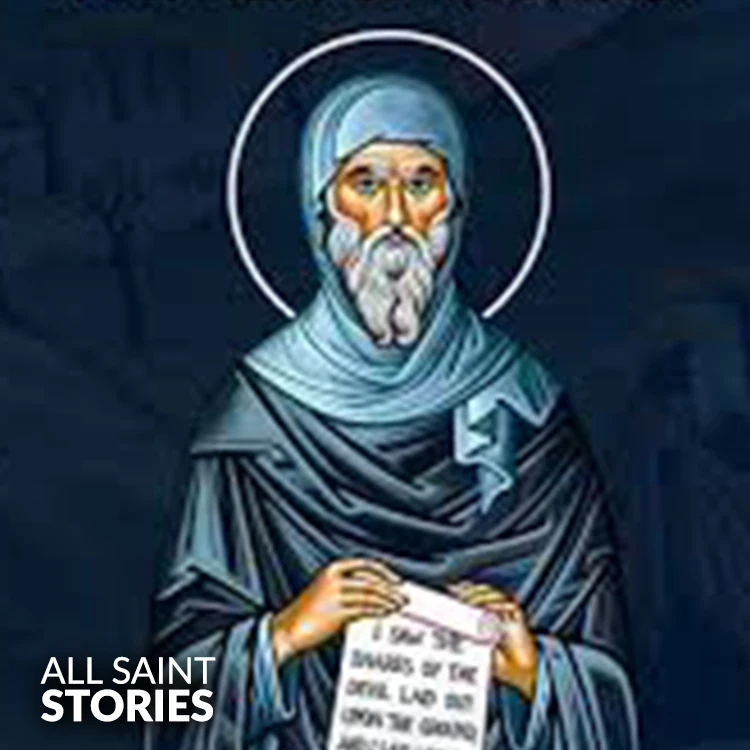

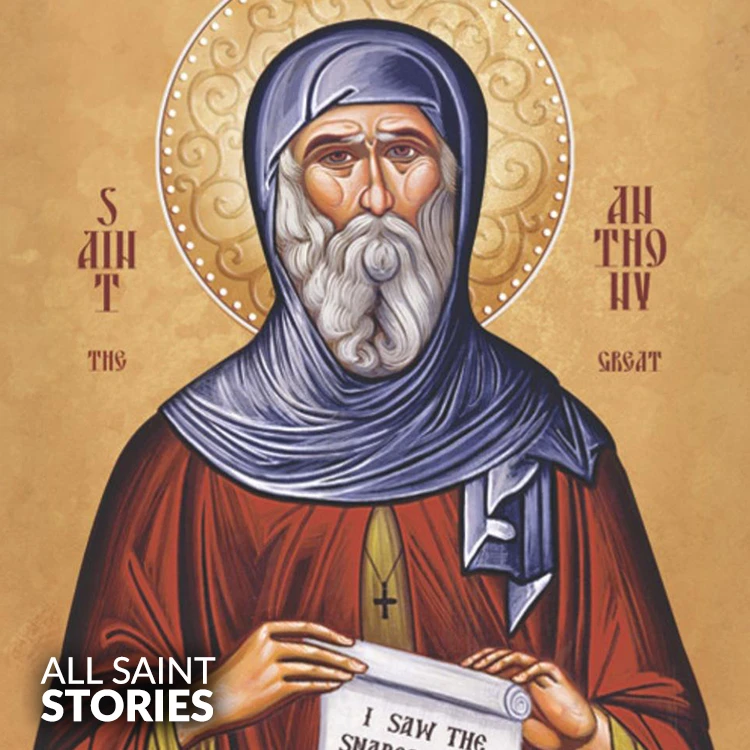


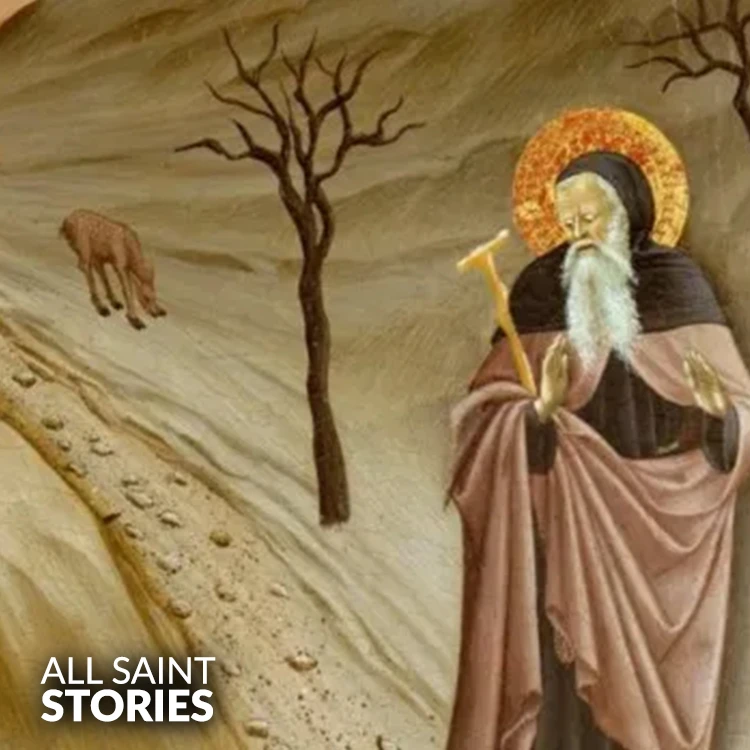

 English
English
 Italian
Italian
 French
French
 Spanish
Spanish
 Malayalam
Malayalam
 Russian
Russian
 Korean
Korean
 Sinhala
Sinhala
 Japanese
Japanese
 Arabic
Arabic
 Portuguese
Portuguese
 Bantu
Bantu
 Greek
Greek
 German
German
 Dutch
Dutch
 Filipino
Filipino